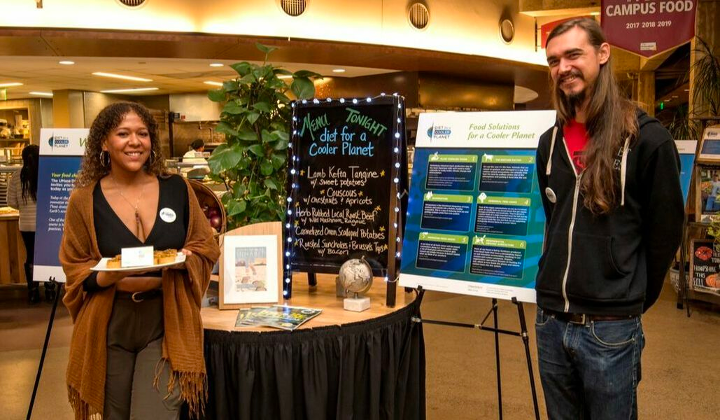On November 27th 2018, UMass Dining hosted an event called Diet For A Cooler Planet that served a meal of delicious regenerative foods featuring contributions from local farms practicing alternative farming methods. The meal was served in all four dining commons on campus to highlight our local partners and encourage students to practice more mindful eating. Hampshire Dining Commons served additional appetizers and displayed of educational materials with student ambassadors available to engage with about how our food choices impact our climate. Below is a piece written by Meghan Sawtelle, a member of the 2018 UMass Permaculture summer garden crew and an undergraduate at UMass Amherst studying Sustainable Food and Farming. She shares her reflections on the Diet For A Cooler Planet Dinner and her experiences with some of the food featured at the event before it was served.
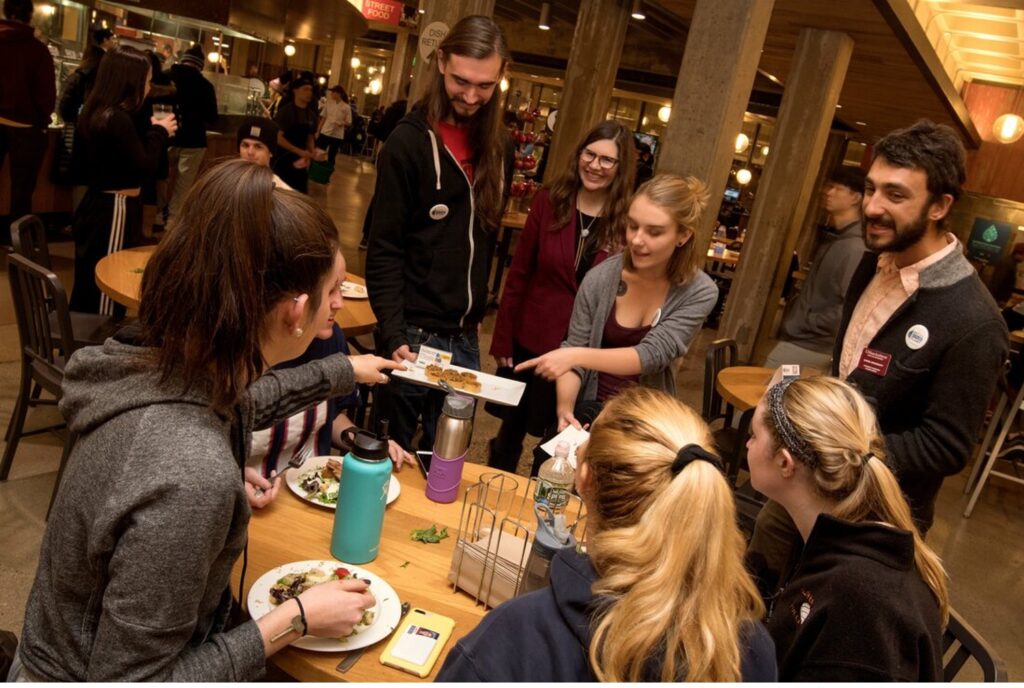
Upon entering the Hampshire dining hall, I was greeted by members of the UMass Permaculture Initiative, who served as a wealth of knowledge regarding everything being offered and its origin. Inside the Hampshire dining room, I was engulfed by an in depth look at the driving forces of permaculture and combating climate change through food, using informative panels and a screening of the Permaculture documentary ‘Inhabit’, starring one of our very own faculty, Lisa Depiano. There was one dish that I felt especially moved by; that was the lamb that had been raised right on campus.
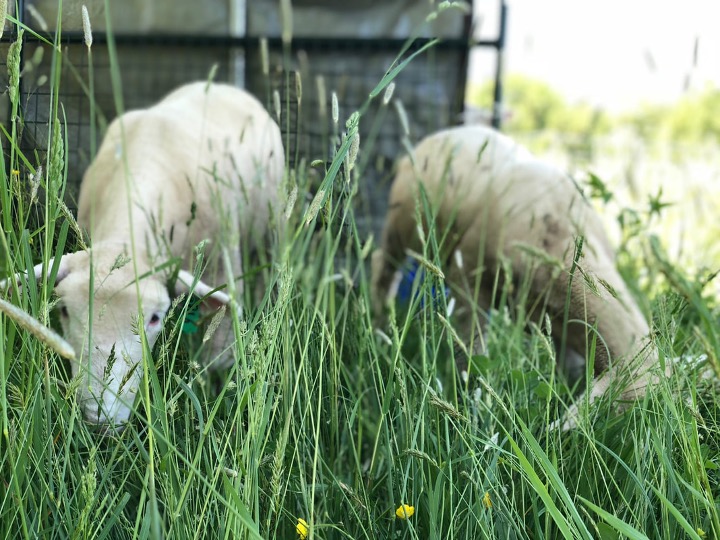
Although I didn’t take part in the upbringing of the animals, I did visit them over the summer and helped to move them to a new pasture in the fall. Watching these creatures happily munch on grass while knowing full well they would end up on a plate gave me a lot to think about.
However, it’s important to recognize how revolutionary their existence was; they were part of a silvopasture system, which is a regenerative farming method that combines tree crops and animal crops. The trees provide shade and forage while the animals control weeds and fertilize the soil. Establishing perennial tree crops helps to fight climate change by sequestering atmospheric carbon into biomass each year it grows, storing a large amount of carbon in the wood itself. Investing more of our agricultural land into establishing silvopasture systems could ease the stress on our nation’s forests as fossil fuel use continues lurching us towards a less dependable future.
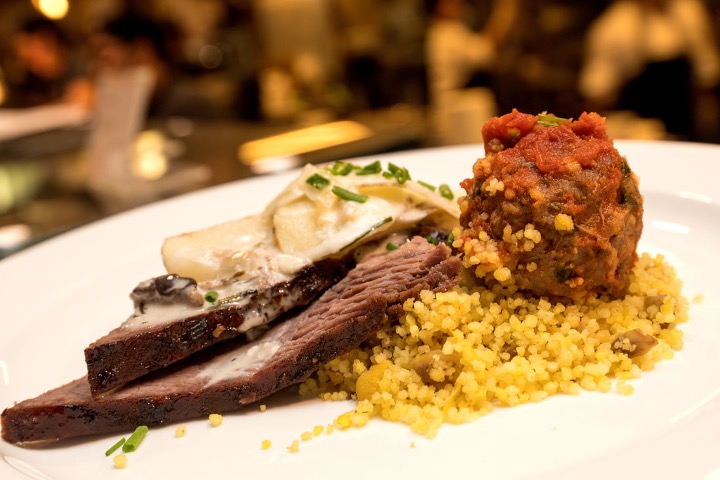
As the event grew closer, I learned that those sweet lambs I had met over the summer were going to be on the menu, and I knew that I had to be there. There is something almost religious to me about consuming food with which I feel complete peace of mind; not having to question the treatment of the animals or the land is more valuable to me than the familiarity of whatever dish I am eating.
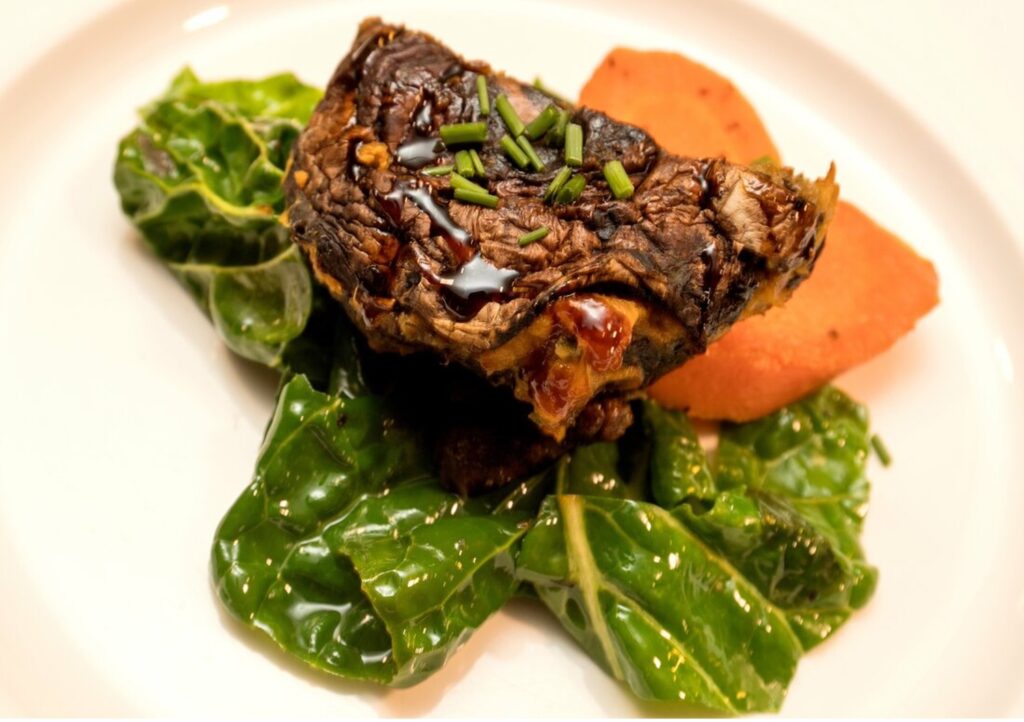
Navigating through the chaos of a dining hall after 7pm, my heart was set on engaging in the final step of raising meat animals, dinner time. I took a deep breath as I served myself the mouthwatering cumin lamb and wheat noodle dish that had been prepared; it felt necessary to ground myself as I have never eaten something that had once nibbled on my pant leg.
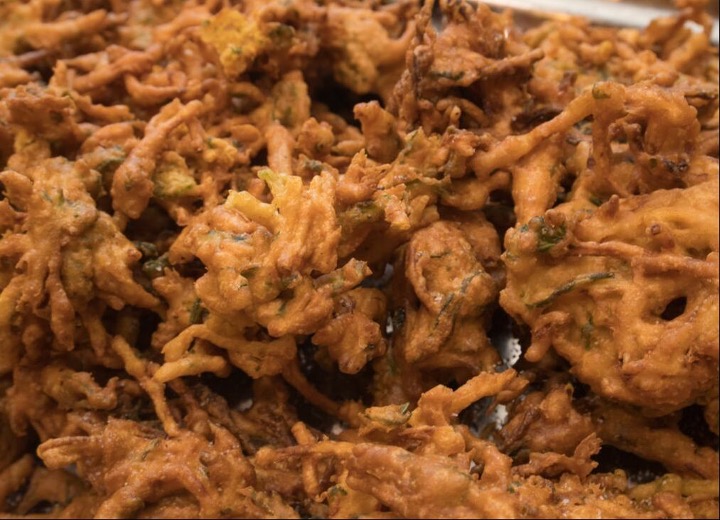
Along with lentil pate, butternut pakoras, and chestnut onion goat cheese tarts, by the end of the evening my stomach was just as full as my heart.
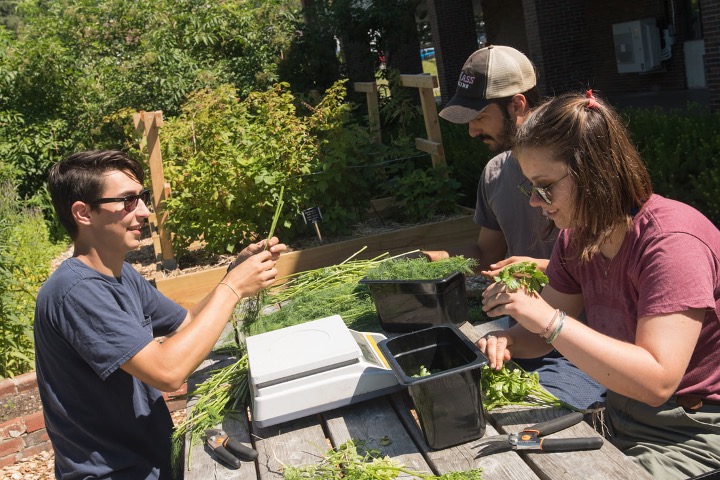
Thanks so much to Meghan Sawtelle for writing this blog and to Sustainable Food and Farming for co-sponsoring the event. And of course a huge thanks to our farm partners for this event: UMass Student Farm, PT Farms, Fungi Ally, Joe Czajkowski Farm, UMass Permcaulture Gardens, and Maine Family Farms.
